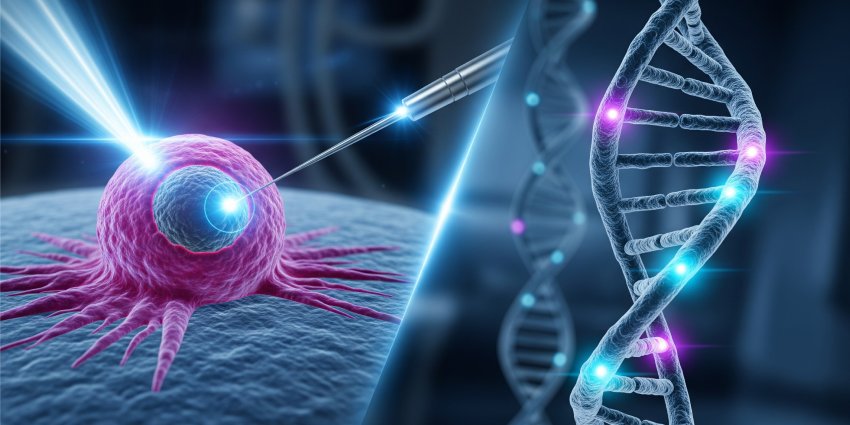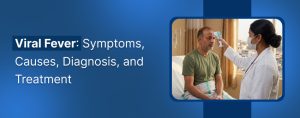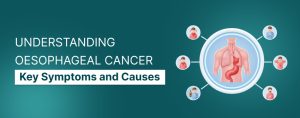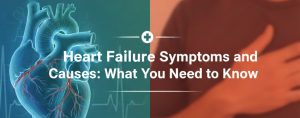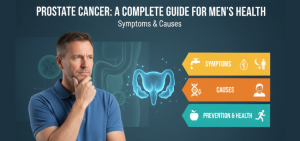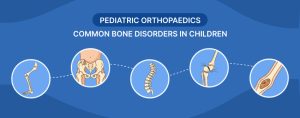Cancer treatment has come a long way, yet patients often face the challenge: of side effects as traditional therapies like chemotherapy and radiation can affect both cancerous and healthy cells, leading to unwanted side effects and variable results. This might result in prolonged recovery, uncertainty, and a constant search for more effective options with possible less side effects.
Targeted cancer therapy is changing this narrative. By focusing on the genetic and molecular features that drive growth and progression of a patient’s tumour, this can be a position way of treating the tumours and sparing healthy tissue. At Venkateshwar Hospitals, oncologists are increasingly integrating targeted therapy for personalized treatment plans, offering patients a tailored approach.
Here, we’ll explain in simple words how targeted therapy works, who are the patients that are most likely getting the benefit, and how it is reshaping cancer care with a more precise and personalized approach.
What is Targeted Therapy?
Targeted therapy is a type of cancer therapy that attacks specific genetic mutuation in cancer cells that help them grow and spread. Unlike chemotherapy, which affects all rapidly dividing cells, targeted therapy selectively attacks the cancer cells, sparing most healthy cells.
Think of it like a “smart bullet” that seeks out its target rather than causing widespread damage.
What are the Types of Targeted Therapy?
There are different types of targeted therapies, each designed to attack cancer in a unique way based on the tumour’s genetic and molecular features. Following are the main types and their mechanism of action.
| Type | How It Works | How It Helps / Details |
| Monoclonal antibodies | Lab-made proteins that attach to specific markers on cancer cell surface | These antibodies mark cancer cells for the immune system, and others deliver toxins directly to the tumour e.g , Trastuzumab, TDMI |
| Small-molecule inhibitors | Block signals inside cancer cells that arrest their capability to grow & divide | Tyrosine kinase inhibitors are a typical example: Imatinib, Gefitinib |
| Angiogenesis inhibitors | Stop tumours from forming new blood vessels, cutting off their nutrient supply | Helps shrink or control tumour growth, e.g., Bevacizumab, Ramucirumab |
| Targeted immunotherapy | Makes cancer cells more visible to the immune system, allowing it to attack | Enhance the body’s own immune system to kill tumour cells, e.g., Pembrolizumab, Nivolumab |
Who Can Benefit from Targeted Cancer Therapy?
Targeted cancer therapy is not indicated for every patient. Its eligibility depends on:
- Presence of specific genetic mutations (e.g., HER2, EGFR, PDL1)
- Type and stage of cancer – Stage 4
- Overall health and prior treatments – Cardiac health
- Immunotherapy can be given in the recurrent setting
It is commonly used in cancers such as:
- Breast cancer
- Lung cancer
- Colorectal cancer
- Certain blood cancers, including leukaemia, lymphoma etc.
- Kidney Cancer
- Head & Neck Cancer
- Liver Cancer
- Stomach Cancer
- Melanoma Cancer
Before starting therapy, oncologists at Venkateshwar Hospital perform biomarker or genomic testing to identify whether the tumour carries actionable mutations. This ensures the treatment is tailored precisely to each patient’s needs.
Learn more about – Early Signs and Symptoms of Breast Cancer You Shouldn’t Ignore
Benefits of Targeted Cancer Therapy
Targeted therapy offers several significant benefits:
- Precision: It acts specifically on cancer cells with the mutation, leaving most healthy cells unharmed.
- Reduced damage: Healthy cells experience less stress compared to traditional chemotherapy.
- Fewer side effects: Many patients tolerate treatment better, experiencing milder discomfort.
- Option after other treatments: Targeted therapy may be effective when standard chemotherapy or radiation alone does not provide results, depending on the tumour’s genetic profile.
Risks and Limitations
Like all cancer treatments, targeted therapy comes with specific challenges:
- Some therapies, such as angiogenesis inhibitors, may cause high blood pressure, while others can affect the liver or cause fatigue.
- Tumours may develop resistance over time, reducing effectiveness.
- Targeted therapies can’t be given to all
- Cost and availability may limit access for some patients.
Read more about – Top Myths About Cancer: Debunked by Oncology Experts
How Does Targeted Therapy Work Against Cancer?
Targeted therapy drugs interfere with the life cycle of cancer cells in multiple ways:
- Blocking growth signals that allow cancer cells to multiply
- Preventing blood vessel formation (angiogenesis) that feeds tumours
- Triggering cell death (apoptosis) in mutated cells
- Making tumours more visible to the immune system
Are There Drawbacks to Targeted Therapy?
Targeted therapy is a powerful and precise treatment modality in modern cancer care, but it is not without limitations. Some key considerations include:
- Resistance may develop: Over time, cancer cells can adapt or mutate, making the therapy less effective.
- Not all cancers have identified targets: Only cancers with specific, validated molecular targets can benefit from targeted therapy.
- Limited options for rare mutations: Some uncommon mutations may not yet have approved drugs, although clinical trials may provide access to new therapies.
- Cost and resource requirements: Targeted therapy can be expensive and may require regular monitoring, lab tests, or frequent hospital visits.
Understanding these limitations helps patients set realistic expectations while exploring the most suitable treatment options.
What are the Side Effects of Targeted Therapy?
Side effects vary depending on the type of targeted drug, and not every patient experiences the same reactions. Common side effects may include:
- Skin rashes, dryness, or sensitivity
- Diarrhoea or digestive changes
- Fatigue or tiredness
- Elevated blood pressure (more common with certain drugs)
- Liver enzyme changes or other organ-specific effects
- Autoimmune diseases – especially in immunotherapy
Unlike chemotherapy, targeted therapy often spares many healthy cells, but some side effects can still be significant. Close monitoring by your oncology team at Venkateshwar Hospital ensures side effects are identified early and managed effectively.
What Can I Expect When Having Targeted Therapy?
Targeted therapy can be administered in different ways depending on the drug and your treatment plan:
- Oral tablets or capsules taken at home
- Intravenous (IV) infusions at a hospital in day care
- Subcutaneous injection in some cases
Treatment schedules vary—some therapies are daily for example, oral tablets such as gefitinib, others weekly/monthly Immunotherapy & antibodies. Regular follow-ups, including blood tests and imaging, help monitor response to treatment and detect side effects early. Patients are encouraged to discuss questions about duration, expected results, and lifestyle considerations with their oncologist.
Where Can I Find Out About Clinical Trials of Targeted Therapy?
Clinical trials play a vital role in developing new targeted therapies. They give eligible patients access to drugs that are not yet widely available.
Doctors are the best guides for referring for a suitable clinical trial. They consider medical history, type of cancer, and overall health before making recommendations. Participating in a trial may provide access to new a treatment, but it also comes with risks that need careful discussion with the healthcare team.
Conclusion
Targeted therapy represents a significant step forward in modern cancer care. Focusing on the genetic drivers of cancer, it offers patients a chance at more effective treatment with fewer side effects.
At Venkateshwar Hospital, the oncology team is committed to using advanced approaches like targeted therapy wherever suitable, ensuring that patients receive care that is both scientific and compassionate.
If you or your loved one is exploring cancer treatment options, it is best to speak with your oncologist about eligibility for targeted therapy. Staying informed and asking the right questions ensures that patients receive care most suited to their needs.
Frequently Asked Questions
1. How does targeted cancer therapy work?
It focuses on specific genes or proteins that help cancer cells grow and spread. Targeted drugs block these signals, making it harder for cancer cells to survive.
2. What is the difference between chemotherapy and targeted therapy?
Chemotherapy affects all fast-growing cells, including healthy ones, whereas targeted therapy selectively attacks cancer cells with specific mutations and altered genetic signature.
3. Is targeted therapy the same as immunotherapy?
No. Immunotherapy stimulates and strengthens the immune system to fight cancer, while targeted therapy directly attacks molecules in cancer cells. Some patients may receive both under careful medical supervision.
4. How is targeted therapy administered?
Depending on the drug, it can be administered as oral tablets/capsules at home, by injection, or through IV infusions at a hospital or clinic.
5. Can targeted therapy be combined with other treatments?
Yes. Oncologists may combine targeted therapy with chemotherapy, radiation, or immunotherapy, depending on the patient’s cancer type and overall health.
6. How long does targeted therapy last?
Duration varies by drug, cancer type, and response. Some patients take it daily or weekly, while others continue for several months. Your oncologist will decide the best plan.
7. Is genetic testing required before starting targeted therapy?
Yes. Most patients undergo biomarker or genetic testing to confirm whether their tumour carries mutations that make targeted therapy effective.
Medically Reviewed by — Dr Siddharth Sahai (Director – Medical Oncology)
